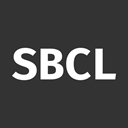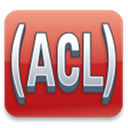Top CLISP Alternatives for Lisp Development
CLISP is a well-regarded, portable ANSI Common Lisp implementation and development environment, known for its interpreter, compiler, debugger, and support for various features like CLOS, MOP, FFI, and Unicode. It even boasts a multilingual UI! However, depending on your specific project needs, platform preferences, or desired features, you might be looking for a CLISP alternative. This article explores some of the best alternatives available for Lisp development.
Top CLISP Alternatives
If you're seeking to expand your Lisp toolkit or find a different flavor for your next project, these alternatives offer a range of capabilities, from deep Python integration to high-performance compilation and robust object-oriented systems.

Hy
Hy is a fascinating dialect of Lisp that’s embedded in Python, making it an excellent CLISP alternative for those who want to leverage the vast Python ecosystem. Since Hy transforms its Lisp code into the Python Abstract Syntax Tree, you get access to the whole beautiful Python library. It is free and open-source, available on Mac, Windows, and Linux, and features an interpreter, object-oriented capabilities, and scripting functionality.

AUMS
AUMS is a CLISP alternative for Windows users looking for a free personal tool with console-based operation and macro support. While less feature-rich than other alternatives, it can be a lightweight option for specific tasks.

Steel Bank Common Lisp
Steel Bank Common Lisp (SBCL) is a top-tier CLISP alternative, known as a high-performance Common Lisp compiler. It is free, open-source software with a permissive license, offering both a compiler and a debugger. SBCL is available across Mac, Windows, and Linux, making it a robust choice for serious Lisp development.

CMU Common Lisp
CMU Common Lisp (CMUCL) is a free, high-performance implementation of the Common Lisp programming language, primarily running on most major Unix platforms like Mac and Linux. It largely conforms to the ANSI Common Lisp standard, making it a reliable open-source CLISP alternative for developers focused on Unix-like environments.

Clozure Common Lisp
Clozure CL (CCL) is another excellent free and open-source Common Lisp implementation with a long history. It distinguishes itself with features like fast compilation. CCL is a versatile CLISP alternative, supporting Mac, Windows, Linux, and BSD platforms.

Nu
Nu is an interpreted object-oriented programming language with a Lisp-like syntax, created as an alternative scripting language for macOS development. If you're specifically targeting Mac OS X and looking for a Lisp-based scripting solution, Nu is a free and open-source CLISP alternative worth considering.

newLisp
newLISP is a LISP-like scripting language ideal for tasks typically handled by scripting languages, such as internet programming, system administration, and text processing. As a free and open-source CLISP alternative, newLISP runs on a wide array of platforms including Mac, Windows, Linux, BSD, and Solaris, making it highly versatile for scripting needs.

Allegro CL
Allegro CL is a powerful dynamic object-oriented development system especially suited for enterprise-wide, complex application development. While it offers a free personal edition, its full capabilities are geared towards professional use. It's a robust CLISP alternative for those requiring advanced features and supporting Mac, Windows, Linux, and BSD.
Each of these CLISP alternatives offers unique advantages. We encourage you to explore them based on your operating system, project requirements, and whether you need a compiler, interpreter, or specific language integrations to find the best fit for your Lisp programming journey.